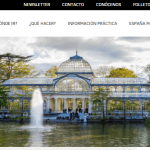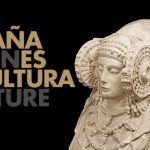Spain’s Ministry of Industry, Trade and Tourism is to work with Colombia to implement the Smart Destinations model in the city of Bogotá, via the State Company for Innovation Management and Tourism Technology (SEGITTUR).
SEGITTUR began working in Colombia to boost the Smart Destinations model in the country with the city of Medellín, which received the Smart Destination designation in December 2020 after exceeding the Secretary of State for Tourism’s methodology and committing to launching the action plan drawn up.
This process presents a huge challenge for a city like Bogotá, which has over 7 million residents, contributes over 20% of the value of the Colombian economy and has the highest number of air connections in the country (39 international routes as of September), which means that it welcomes over 40% of international visitors to the country. This is why the city is aiming to become a Smart Destination, a process that is related not only to technology and innovation, but also involves areas such as the destination’s governance, sustainability and accessibility.
Bogotá is now taking its first steps down this path, with the support and collaboration of SEGITTUR. Cooperation between the public and private sectors and between companies and individuals will be key, as everyone’s work must be coordinated to benefit the destination.
The city of Bogotá is trusting SEGITTUR due to its extensive experience with the project. The Secretary of State for Tourism’s Smart Destination methodology has been recognised by international bodies such as the World Tourism Organization, the Organisation for Economic Co-operation and Development, the European Commission and the Inter-American Development Bank.
To the Chairman of SEGITTUR, Enrique Martínez, “Joining this project will add value to Bogotá as a destination, with increased competitiveness thanks to a better use of its tourism resources, improved efficiency in production and commercialisation projects and a boost to the sustainable development of the destination, environmentally, economically and socio-culturally speaking. Overall, it will have long-term revitalising effects on the area.”
For the director of the District Institute of Tourism, Karol Fajardo Mariño, “Turning Bogotá into a Smart Destination is an opportunity to further promote the coordinated work carried out between the public and private sectors in the city. This model is supporting Bogotá’s plan and vision of itself as a more sustainable destination, as well as its innovation processes and incorporation of technologies for social transformation and to become a more competitive destination for our visitors and tourists, in addition to a city with the highest quality of life for residents.”
To make a start on the task, the SEGITTUR team has already held an initial project meeting with senior members of the District Institute of Tourism in Bogotá, during which they explained what it means to be a Smart Destination, the methodology they will be working with and the road map they will be following over the coming weeks.
The work is all based around the Secretary of State’s Smart Destination methodology, which assesses 262 indicators linked to the aspects that make up a Smart Destination. In Bogotá, this will begin with the analysis of the five categories: governance, innovation, technology, accessibility and sustainability.
The work will begin with the analysis of all the city’s information related to the five categories that make up the methodology: governance, innovation, technology, accessibility and sustainability.
Following this, there will be a series of interviews with leaders from different areas of the District Institute of Tourism, as well as with other bodies directly and indirectly related to tourism, because the Smart Destination project aims to involve everyone as tourism is a very transversal sector.
The results of the meetings and analysis of the information provided by all the parties involved will be used to assess the level to which Bogotá complies with each category. This will serve as the basis for the diagnostic report and the action plan to turn it into a Smart Destination.





